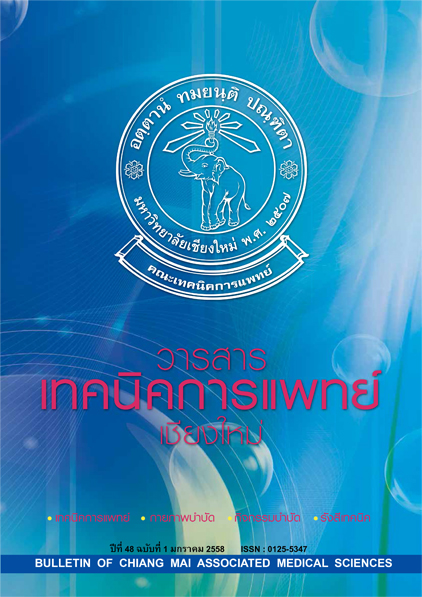Human leukocyte antigen-associated uveitis in Thai population: Brief review
Main Article Content
Abstract
Human Leukocyte Antigen (HLA) has been associated with several immune-mediated diseases,
malignancies and infectious diseases. Due to the HLA complexity and polymorphisms, several types
of HLA have been used as the molecular markers in diagnosis. Among different ethnic groups, HLA is
genetically diverse resulting in the differences of disease susceptibility. The study of HLA in Thai population
will help an understanding of diseases pathogenesis and the genetic linkage leading to the development
of genetic markers that are specific to Thai population. Vogt-Koyanagi-Harada (VKH) syndrome,
HLA-B27-associated acute anterior uveitis (AAU) and Behçet’s disease (BD) were found to be the major
causes of non-infectious and autoimmune-related uveitis in Thai patients. Several etiologic studies in
Western, European and other Asian populations reported the strong association between HLA-DR4 and
VKH, HLA-B27 and AAU as well as HLA-B51 and BD. However, few in HLA-B27 and none in HLA-B51 and
HLA-DR4 related uveitis study have been reported in Thailand. This briefly review discusses the association
of HLA and non-infectious uveitis among populations and future research aspects for Thai populations.
Bull Chiang Mai Assoc Med Sci 2015; 48(1): 10-17. Doi: 10.14456/jams.2015.6
Article Details
Personal views expressed by the contributors in their articles are not necessarily those of the Journal of Associated Medical Sciences, Faculty of Associated Medical Sciences, Chiang Mai University.

